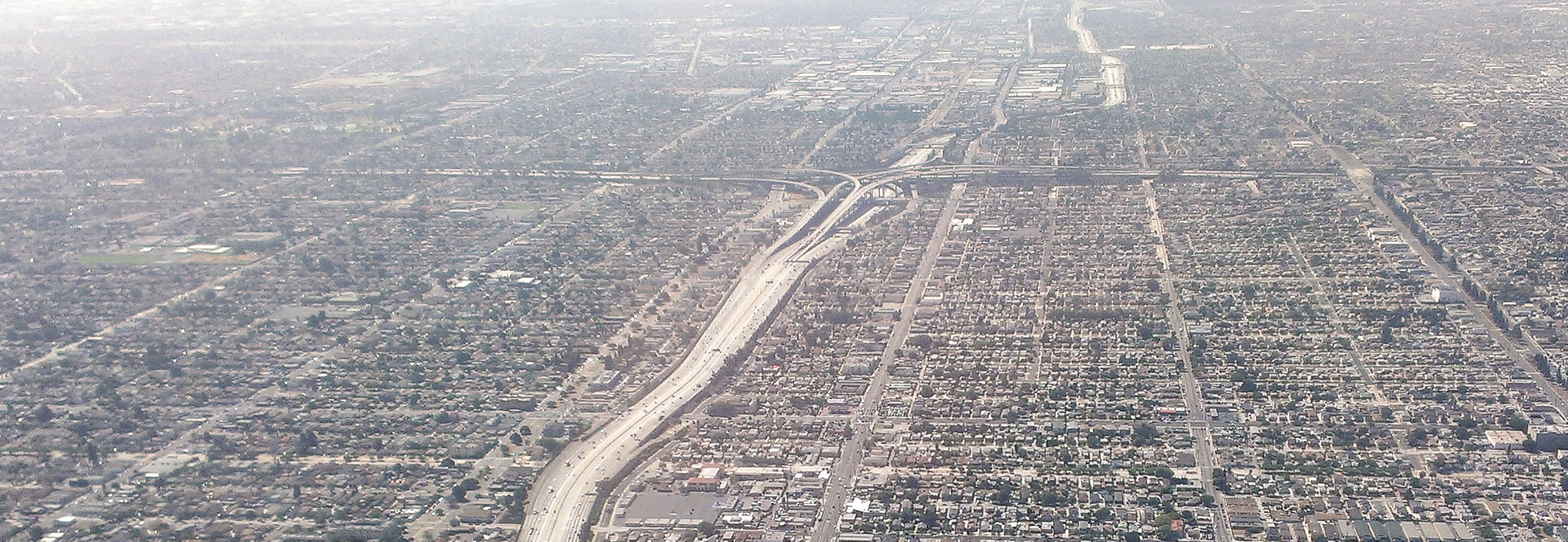UCLA-HHMI Diversity, Health Equity and the Environment
This program takes the form of a three-course series:
• Fall Quarter: “Diversity, Health Equity and the Environment: Seminars and Careers” 2 units (Prerequisite: LS7B)
This is a seminar course that explores a range of important work that’s being done at the intersection of medicine, health equity, and environmental justice. The course is comprised of guest lectures, class discussions and presentations. Students learn directly from people at the forefront of promoting health equity: physicians, researchers, environmental justice advocates and leaders of community programs. At the end of this quarter, students create presentations reflecting their own interests related to health equity and the environment.
>> click to view our guest speaker list
>> click to view examples of student presentations
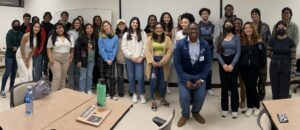
• Winter Quarter: “Diversity, Health Equity and the Environment: Research Practicum” 4 units
This 4-unit course provides students with an opportunity to conduct original scientific research on environmental factors that are known to contribute to health disparities. No prior research experience is needed. Students work in collaborative groups, guided by research mentors, to collectively survey published literature, identify an original, publishable, research question, then design and carry out their own research.
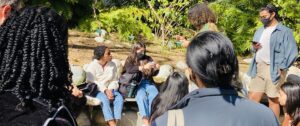
• Spring Quarter: “Diversity, Health Equity and the Environment: Communicating Science” 4 units
In this 4-unit course, students learn to communicate science, to academic and general audiences, on topics related to health equity and the environment.
Due to real-world conditions, like the pandemic, and the unknowns of bringing novel ideas to life, this course continues to evolve over time.
In the first year of this course (Winter 2020) students created short, 3 to 5-minute documentary videos for the general public, on a variety of topics related to health equity and the environment.
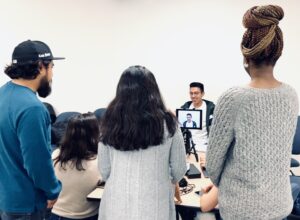
>> click to see examples of class documentaries
In Spring 2020, class was held fully online, and original research plans were forced to shift. Students helped to guide alternative plans to gain hands-on research experience. Ultimately, they decided to study inequities in higher education during COVID. Students worked with UCLA researchers to publish a peer-reviewed paper for an academic audience: “Disparities in Remote Learning Faced by First-Generation and Underrepresented Minority Students during COVID-19: Insights and Opportunities from a Remote Research Experience.” Their paper is catalogued in the National Library of Medicine.
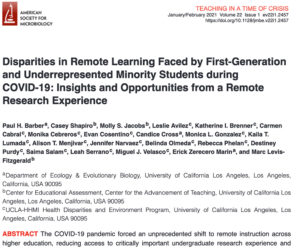
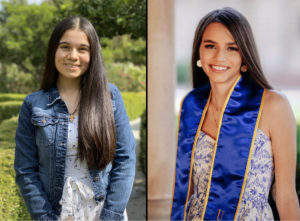
Pictured: Alison Menjivar and Jennifer Narvaez, two of the 17 student co-authors.
In subsequent years, students chose to study indoor air quality (PM 2.5) in their communities. Here is an example of a flyer students created to inform their participants about their research findings and about indoor air pollution.
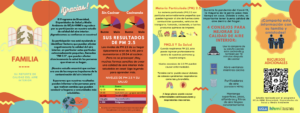
Students continued learning how to write scientific papers and how to create presentations for academic audiences, and presented their research at UCLA’s Undergraduate Research Week.
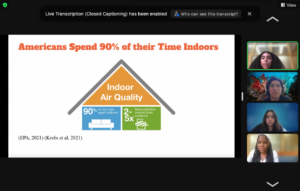
Our students presenting at UCLA’s Undergraduate Research Week
ADDITIONAL COURSE INFORMATION
The courses are led by Professor Paul Barber, professor of ecology and evolutionary biology and a faculty member of the UCLA Institute of the Environment and Sustainability.
All courses, in this year-long series, count towards upper-division course requirements. Instructor consent is required to enroll. This program has limited enrollment, and is a great opportunity for premedical students or any science student with a passion for promoting health equity.
For more information, email: jchoi@college.ucla.edu, with the subject line: “Diversity, Health Equity and the Environment”
